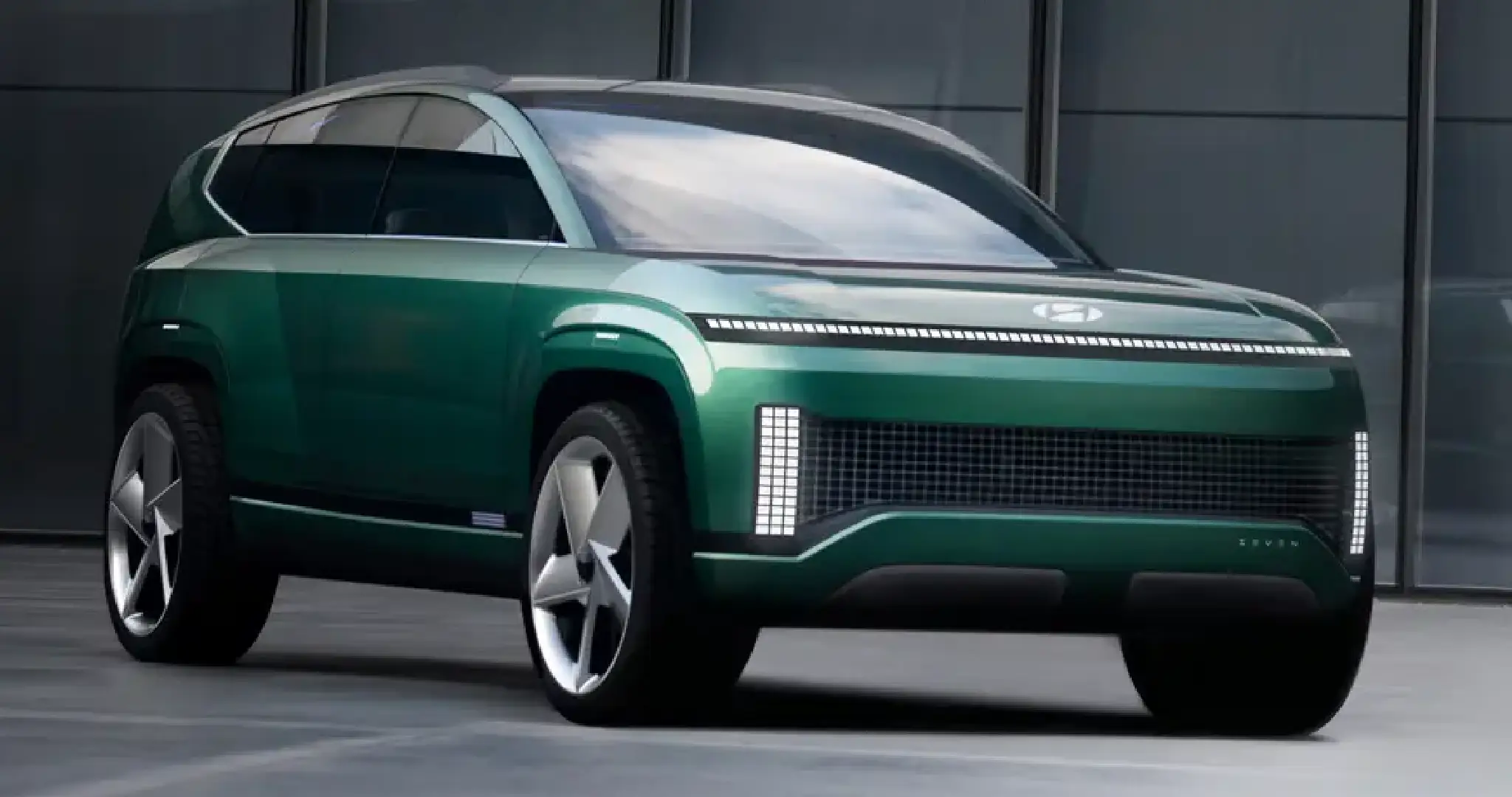The automotive industry is no stranger to innovation, but the 2024 Hyundai Concept Car represents a new leap in technological advancement, design, and sustainability. This article delves into the revolutionary aspects of Hyundai’s latest concept car, exploring its design philosophy, technological features, performance metrics, and potential impact on the future of the automotive market.
Introduction: A New Era for Hyundai
Hyundai, a name synonymous with reliability and innovation, has once again pushed the boundaries with its 2024 Concept Car. This vehicle is not just a prototype; it’s a glimpse into the future of automotive technology, showcasing Hyundai’s commitment to sustainability, advanced engineering, and cutting-edge design.
Concept Car Overview
Design Philosophy
Hyundai’s 2024 Concept Car embodies a futuristic design philosophy, combining sleek aesthetics with functional form. The design team has focused on:
- Aerodynamics: The car features a streamlined body to reduce drag and improve efficiency.
- Minimalism: The interior and exterior design emphasize simplicity and elegance, with clean lines and uncluttered surfaces.
- Adaptive Lighting: Advanced LED lighting systems adjust based on driving conditions and enhance visibility.
Technological Features
Hyundai’s concept car integrates several groundbreaking technologies:
- Autonomous Driving: Equipped with state-of-the-art sensors and AI, the car can navigate complex environments with minimal human input.
- Electric Powertrain: The vehicle utilizes a next-generation electric powertrain that promises enhanced range and performance.
- Augmented Reality Dashboard: The dashboard features an AR interface that provides real-time data and navigation cues directly onto the windshield.
Performance Metrics
Electric Powertrain
The 2024 Hyundai Concept Car’s electric powertrain is designed for optimal performance and efficiency:
- Range: The car boasts an estimated range of over 500 miles on a single charge, thanks to advancements in battery technology and energy management systems.
- Acceleration: With a 0-60 mph time of under 3.5 seconds, the car combines efficiency with exhilarating performance.
- Charging Time: Fast-charging capabilities allow for 80% charge in just 15 minutes, reducing downtime for drivers.
Also Read : Take a Sneak Peek into Hyundai’s Future Car Designs
Driving Experience
Hyundai has engineered the driving experience to be both engaging and intuitive:
- Adaptive Suspension: The concept car features an adaptive suspension system that adjusts to road conditions for a smoother ride.
- Active Noise Cancellation: Advanced soundproofing technology ensures a quiet and serene driving environment.
- Enhanced Handling: The vehicle’s dynamic handling system provides precise control and responsiveness.
Sustainability and Environmental Impact
Green Manufacturing
Hyundai’s commitment to sustainability extends beyond the vehicle’s powertrain:
- Recycled Materials: The concept car’s interior incorporates high-quality recycled materials, reducing environmental impact.
- Energy-Efficient Production: Hyundai’s manufacturing facilities use renewable energy sources and advanced waste management practices.
Zero-Emission Driving
The electric powertrain of the 2024 Hyundai Concept Car ensures zero tailpipe emissions, contributing to cleaner air and a reduced carbon footprint. The company’s focus on sustainable energy solutions aligns with global efforts to combat climate change.
Market Implications
Consumer Impact
The introduction of this revolutionary concept car will likely influence consumer preferences:
- Shift Toward Electric Vehicles: As more consumers prioritize sustainability, the demand for electric vehicles is expected to rise.
- Increased Interest in Autonomous Driving: The concept car’s advanced autonomous features may drive interest in self-driving technology.
Industry Trends
Hyundai’s innovations set the stage for industry-wide changes:
- Advancements in Battery Technology: The success of Hyundai’s electric powertrain may accelerate advancements in battery technology across the industry.
- Integration of AI in Vehicles: As AI becomes more integrated into automotive technology, other manufacturers may follow Hyundai’s lead in developing smart, autonomous systems.
Case Studies and Examples
Tesla Model S
Tesla’s Model S has been a pioneer in electric vehicles, demonstrating the potential of electric powertrains and autonomous driving. Hyundai’s 2024 Concept Car builds on this foundation, offering improvements in range, charging time, and driving experience.
Rivian R1T
Rivian’s R1T electric truck has introduced innovative features and performance metrics. Hyundai’s concept car presents a competitive alternative, focusing on advanced technologies and sustainable practices.
Future Prospects
Technological Advancements
The concept car serves as a testing ground for future technologies:
- AI and Machine Learning: Continued development in AI will enhance autonomous driving capabilities and vehicle-to-vehicle communication.
- Advanced Battery Technology: Future iterations of Hyundai’s electric powertrain will likely feature even greater range and faster charging.
Industry Evolution
The automotive industry is on the cusp of significant transformation:
- Increased Regulation: Governments may implement stricter emissions regulations, further accelerating the shift to electric vehicles.
- Collaborations and Partnerships: Automakers will likely form partnerships to share technology and advance sustainability goals.
Conclusion
Hyundai’s 2024 Concept Car is more than a glimpse into the future; it is a testament to the company’s vision and commitment to innovation. With its revolutionary design, cutting-edge technologies, and focus on sustainability, this concept car is poised to influence the automotive industry for years to come. As we look to the future, Hyundai’s latest creation reminds us of the exciting possibilities that lie ahead in the world of automotive technology.
(source)
Originally posted 2024-08-02 05:59:13.
